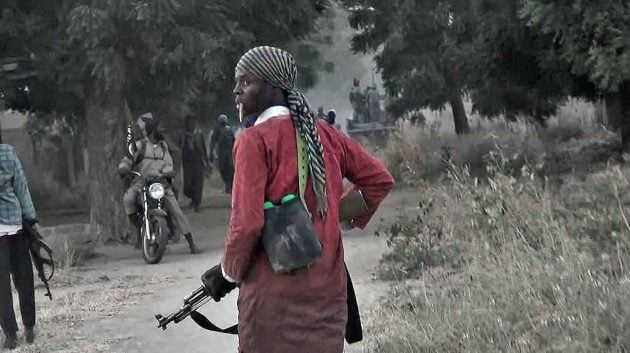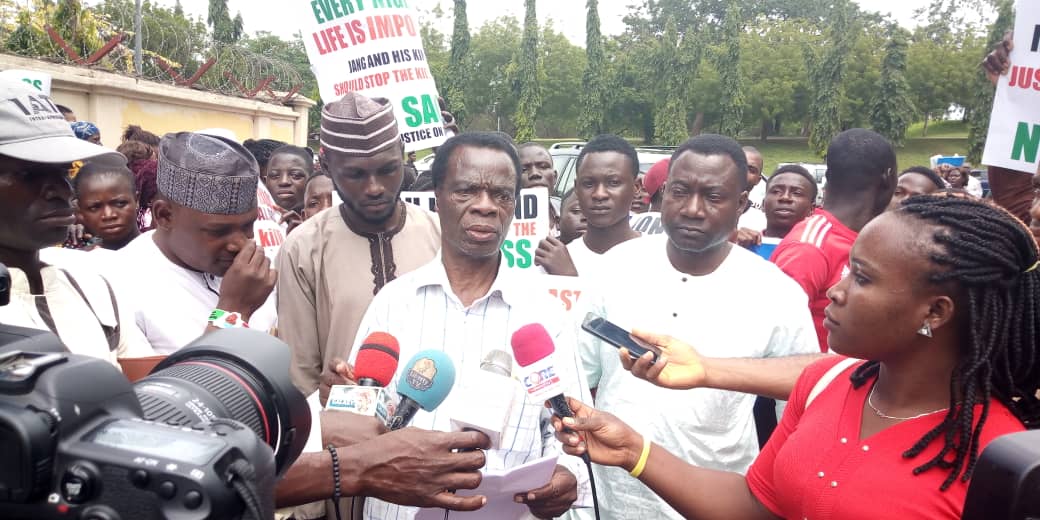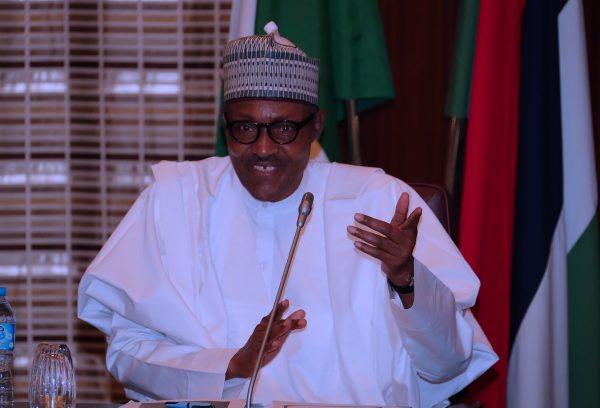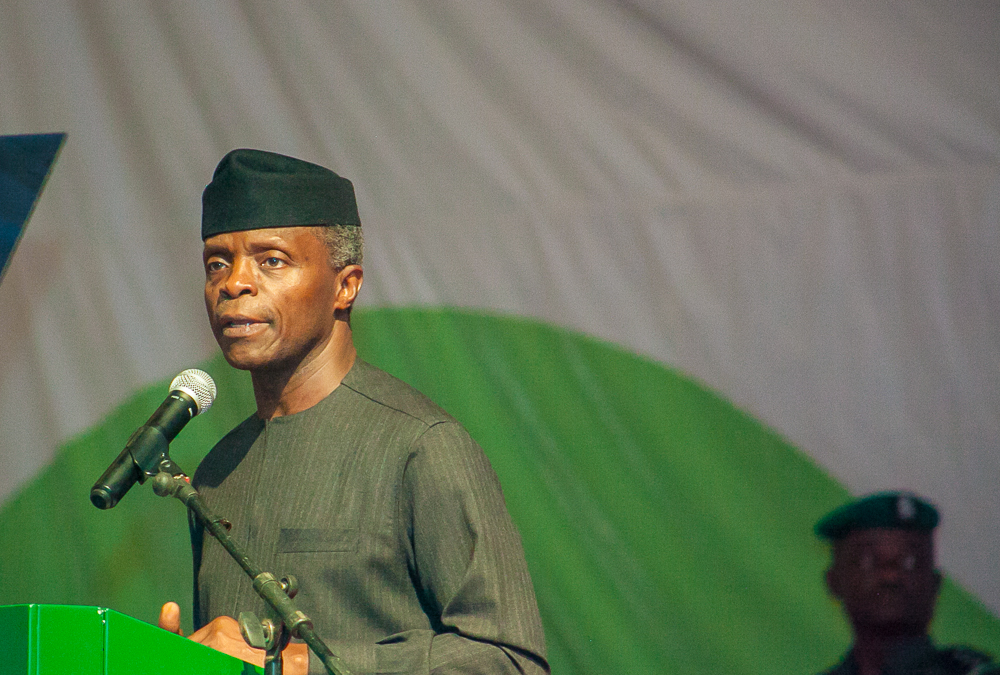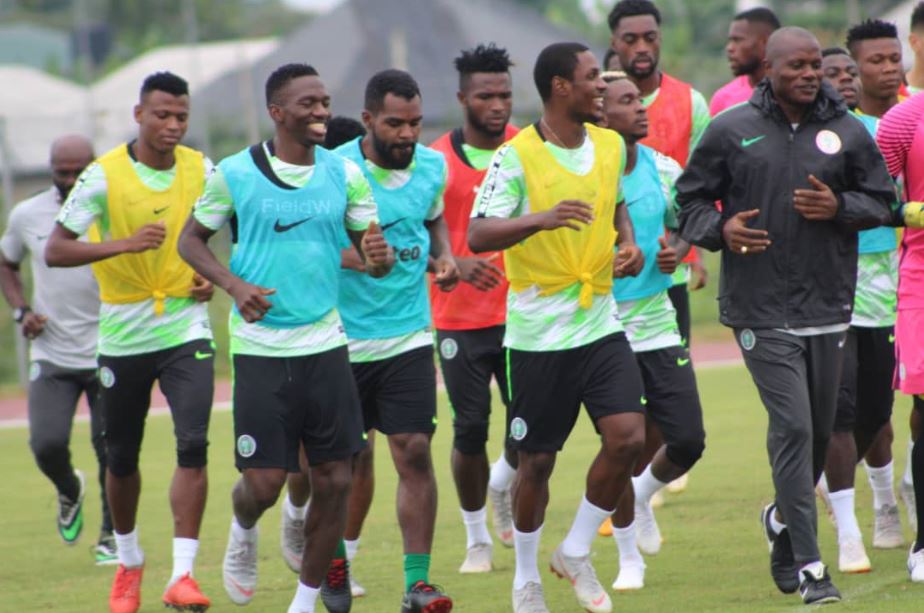BY IDOKO AINOKO
A fair assessment of Nigeria’s war against terrorism would look at what is presently on ground and perhaps make a month on month and year on year comparison. But even this is not an adequate measure of whatever success or lack of it that is being recorded since statistics have an uncanny way of getting the figures right while losing the context. An assessment of whatever has been achieved must then also compare critical way points like comparing four months before the 2015 General Elections with the present day of four months to the 2019 polls. It is also important not to lose sight of the period that preceded the emergence of Boko Haram, those glorious days when violence consisted of fanatical youths flogging hapless ladies for daring to wear mini-skirts before they were radicalized into bombing innocent worshipers of all faiths and traders out to make honest living.
Beginning from 2009 after Boko Haram’s founder, Mohammed Yusuf, was killed terrorism became an everyday concept that Nigerians had to live with. At the height of Boko Haram’s insanity security formations, including those of para-military agencies like the Immigration Service, were routinely targeted. Worshippers, irrespective of their faith or creed, were massacred in developments that roused the nation to realize that there was nothing pious or religious in the quest embarked upon by Boko Haram fanatics.
In the years leading to the 2015 General Elections, it became glaring that Borno might have been the birth place of the terror group but its reach was already stretching into the rain forests in the south of the country, echoes of the wailings from the aftermath of its attacks travelled beyond the Sahara Desert to be heard on the shores of Nigeria’s southernmost reach. It was a period when some were beginning to attribute mystic qualities to the terrorists because the military as constituted and led at that time was proving to be no match for Boko Haram members – part of the accounts rendered by some critics was that the military leaders of those years built barricades around their offices instead of stepping out with whatever weapons were at their disposal to challenge the terrorists.
Advertisement
Understandably, there were reasons given for this failure to respond to the terrorists with the appropriate military force deserved at that point. Among them was less than sterling leadership at the top, corruption that permeated to system to a point that the terror attack became valid cover for some people to loot the country as seen in the arms purchase scandal (armsgate/Dasukigate), lack of support from international partners and missing political will to tackle the problem.
The elections produced President Muhammadu Buhari, who in turn gave the country the present crop of military Service Chiefs. It can be said that the rest is history. Boko Haram got to meet a different Nigerian Army from the one it was used to. In a matter of months its fighters have been driven out of all Nigerian states with the exception of Borno, its birthplace, and even here its members now operate cross border. Of course, it sometimes attacks military outposts and this makes big news headlines relative to the moment. Juxtaposed to the same period four years ago, such attacks would barely get mention in the long litany of profane actions that the terrorists would have carried; but compared month on month such acts of terror look significant.
These kinds of attacks have become the raw materials around which international media outlets weave their story to present Nigeria to the world as the image of hell. They present their accounts in a manner that suggest that the whole of Nigeria has been bombed even though Borno is one of the 36 states (and the Federal Capital Territory) that make up Nigeria. Yet something is consistently missing in their reports: they never acknowledge their roles in reporting the region into crisis and neither will they accept the role of their home countries in keeping Boko Haram in place through overt and covert support for the terror group through warped policies in the Middle East and North Africa. This explains in part why they do not want to acknowledge the sad reality that Boko Haram as known in its prime has been defeated.
Advertisement
In their bid to justify their reports, they amplify the occasional attacks and put special footnotes on how fatalities from attacks by Boko Haram remnants remains a concern. At the risk of appearing insensitive, those pursuing this line of thought often neglect to urge the communities where Boko Haram members are hiding to give them up or at least volunteer information to security agencies to round them up and make the victory over terrorism a final one. For as long as these communities continue to allow filial, ethnic and religious considerations prevent them from giving up fleeing terrorists then there is a price to pay. That price includes the Nigerian military coming off looking bad each time remnants of the terrorists are able to hide in plain sight to plan new rounds of atrocities.
It must be noted and placed on record that the military is not wholly without blame in this. The desire to conform has seen it allowing international media, international NGOs and their Nigerian fixers to operate by different sets of rules from what is obtainable in other parts of the world where terrorism is a challenge. These groups have been allowed to operate in manners that place them at vantage position to be useful to the terrorists. It is no surprise that several groups and individuals had accused some of the media platforms and NGOs of working for Boko Haram terrorists. Each time the Army makes profound gains against the terrorists a phenomenon repeats itself: the NGOs would accuse troops of abuses, instigate dissent among soldiers and come up with just any other form of distraction while the international media is at hand to give prominence to such activities. At other times, they tell tales that do not tally with the reality on ground, which the terrorists now seem to take as their cue to regroup and make attempts at being seen as still relevant. This cycle has become a new kind of war.
The successes of the military are indisputable but it appears it makes the representatives of the international media and NGOs unhappy. Nigeria’s victory against Boko Haram seems to provoke a wave of sadness that makes these organizations follow the most bizarre of paths, that of rooting for terrorists to the detriment of the law-abiding population. Yet, they must at some point accept the reality of Boko Haram’s defeat even when it makes them sad for this cycle of hate that fires them to hate Nigeria cannot remain self-perpetrating forever. Even if these supporters of Boko Haram desire for the group to remain a thorn in the flesh of Nigerians forever the Nigerian military has the capacity and is in a position to truncate their evil wish same way it did by reducing the terror group into its current state of disarray.
Ainoko wrote from Kaduna
Advertisement
Add a comment
